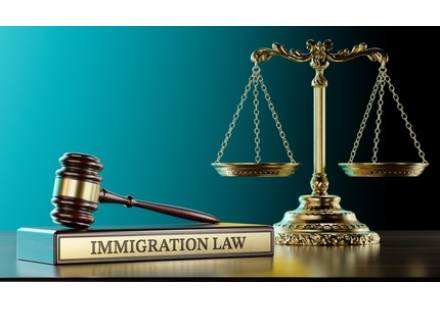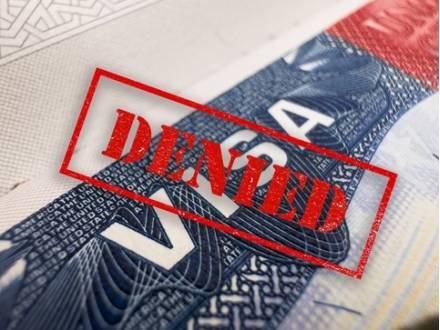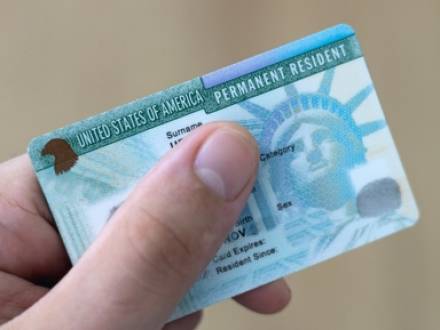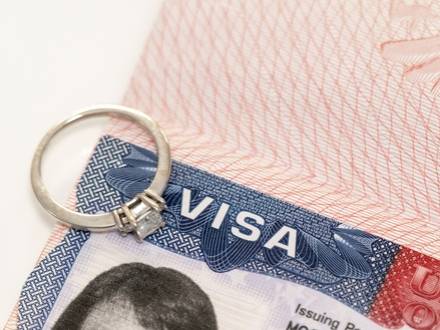Recent Blog Posts
San Francisco Immigration Court to Close, Cases Move to Concord Court
 If you have a case at the San Francisco Immigration Court, you are probably wondering what is going to happen to your case. The San Francisco Immigration Court is closing, and most cases will be moved to the Concord Immigration Court. This is causing confusion and fear for many families whose loved ones have upcoming appointments that were meant to be heard this year.
If you have a case at the San Francisco Immigration Court, you are probably wondering what is going to happen to your case. The San Francisco Immigration Court is closing, and most cases will be moved to the Concord Immigration Court. This is causing confusion and fear for many families whose loved ones have upcoming appointments that were meant to be heard this year.
If your case is being moved from San Francisco in 2026, our Concord immigration attorneys are right here and ready to help.
What Is Happening to the San Francisco Immigration Court in 2026?
The San Francisco Immigration Court is shutting its doors by January 2027. All remaining court personnel are being transferred to the Concord Immigration Court, which is about 30 miles away. A small number of courtrooms at the Department of Homeland Security's San Francisco detention facility at 630 Sansome Street will remain open, but the main courthouse is closing.
What Happens to the People Arrested by ICE?
 Immigration and Customs Enforcement arrests have made headlines around the world in 2026. Muslim communities have faced particularly aggressive enforcement. In Minnesota, Operation Metro Surge targeted Somali neighborhoods, with community leaders reporting that families are afraid to leave their homes, skip medical appointments, and avoid going to mosques out of fear of arrest.
Immigration and Customs Enforcement arrests have made headlines around the world in 2026. Muslim communities have faced particularly aggressive enforcement. In Minnesota, Operation Metro Surge targeted Somali neighborhoods, with community leaders reporting that families are afraid to leave their homes, skip medical appointments, and avoid going to mosques out of fear of arrest.
The situation has created widespread panic in immigrant communities across the country, including here in the Bay Area. If you or someone you know has been arrested by ICE, you need to understand what happens next. Having a San Francisco removal defense attorney who will actually fight for you in court can make the difference between deportation and staying with your family in the United States.
What Authority Does ICE Have to Make Arrests?
ICE agents are federal officers under Section 287 of the Immigration and Nationality Act, which gives them broad authority to arrest people they believe are in the United States without legal immigration status. Under this federal law, ICE can arrest someone without a warrant if the officer has reason to believe the person is in the country illegally.
State Department Halts Immigrant Visas from 75 Nations
 The U.S. State Department announced on January 14, 2026 that it will suspend immigrant visa issuance for nationals of 75 countries beginning January 21. The administration cites concerns about public benefit usage as the justification for this sweeping pause.
The U.S. State Department announced on January 14, 2026 that it will suspend immigrant visa issuance for nationals of 75 countries beginning January 21. The administration cites concerns about public benefit usage as the justification for this sweeping pause.
For Bay Area families with ties to these nations, this creates immediate problems. Cases that were weeks away from completion now face indefinite delays. If you are wondering what this policy change means for you and your loved ones, call our San Francisco immigration lawyers right away.
Can the Trump Administration Legally Freeze Immigration Visas?
The government is using a law called the public charge rule. Under Section 212(a)(4) of the Immigration and Nationality Act, the United States can deny visas to people who might need government assistance for basic needs like food or housing. Usually, immigration officers look at each person's case individually to decide if they might become a "public charge."
Marquis Who’s Who Honors Ryan Michael Hafey for Excellence in Legal Services
CONCORD, CA, December 4, 2025, Ryan Michael Hafey has been selected for inclusion in Marquis Who's Who. As in all Marquis Who's Who biographical volumes, the people profiled are selected based on factors such as position, noteworthy accomplishments, visibility, and prominence in a field.

A founding partner and immigration attorney at Hafey & Karim — which focuses on cases involving deportation defense, asylum, family-based immigration and naturalization. — Mr. Hafey has become renowned for his knowledge and skill in Immigration Law. Drawing on a wealth of professional experience and a strong educational foundation, he has demonstrated a remarkable ability to handle a high volume of cases efficiently, achieving successful outcomes for his clients.
After working for the Los Angeles City Attorney’s office after law school, Mr. Hafey's career in Immigration Law began at the Law Office of Robert B. Jobe, where he served as a Supervising Immigration Attorney from 2019 to 2020. During this time, he honed his skills in managing complex cases under tight deadlines. His ability to adapt quickly and maintain high standards of client service was evident in his impressive grant rate of approximately 80 to 85 percent, a testament to his skill and commitment to helping those in need.
What Can Disqualify an Asylum Case?
 Winning an asylum case in the United States has never been easy. But recent changes to immigration enforcement have made it even harder. If you are seeking protection in the U.S., you need to understand what can cause your case to fail before you step into a courtroom.
Winning an asylum case in the United States has never been easy. But recent changes to immigration enforcement have made it even harder. If you are seeking protection in the U.S., you need to understand what can cause your case to fail before you step into a courtroom.
Asylum law allows people who face persecution in their home country to find safety here. However, immigration judges now apply strict rules that can disqualify even real claims. Knowing these barriers ahead of time helps you and your attorney make a stronger case.
Our Bay Area immigration attorneys are ready to fight for you. Attorney Karim speaks Bengali fluently and understands the challenges you face as a hopeful immigrant in 2026.
Can You Get Asylum if You’ve Committed a Crime?
Under Section 208(b)(2) of the Immigration and Nationality Act, certain criminal convictions can permanently keep you from receiving asylum. These are called "statutory bars." The immigration judge has no choice but to deny your case if one applies.
What Happens at an Individual Immigration Court Hearing?
 Many people have heard of a "master calendar hearing," which is the first short scheduling hearing in your immigration case. But the individual immigration court hearing that comes next is very different. This is the hearing where your full case is presented, evidence is reviewed, and the judge makes a decision about whether you can stay in the United States.
Many people have heard of a "master calendar hearing," which is the first short scheduling hearing in your immigration case. But the individual immigration court hearing that comes next is very different. This is the hearing where your full case is presented, evidence is reviewed, and the judge makes a decision about whether you can stay in the United States.
For families right now, changes to the immigration system under the Trump Administration are very scary and unpredictable. If you have an individual hearing coming up, having the right attorney at this stage is very important.
An individual immigration court hearing is a courtroom process. Some lawyers only file forms with USCIS, but you need an attorney who knows how to argue, question witnesses, and manage evidence. Our firm provides trusted support in English and Bengali, with translators available in Spanish, Hindi, Punjabi, and Urdu. Call our Bay Area immigration attorney now.
What Happens at Your First Deportation Hearing?
 Your first hearing in immigration court is called a "master calendar hearing." This hearing is short and is not your trial, but it is very important and you need to be there. Understanding what is going to happen can help you to prepare and feel less nervous.
Your first hearing in immigration court is called a "master calendar hearing." This hearing is short and is not your trial, but it is very important and you need to be there. Understanding what is going to happen can help you to prepare and feel less nervous.
If you are facing deportation in 2026 and need removal defense, contact our Bay Area immigration attorneys today. We represent immigrants from all over the world and speak Bengali fluently to help South Asian and Muslim families stay together.
What Is a Master Calendar Hearing?
A master calendar hearing is your first time in immigration court. Many people have hearings on the same day. You will wait in the courtroom with other people. The judge will call names one by one.
When the judge calls your name, you stand up. You might go to a table in front of the judge, or you might stay where you are sitting. Different courts work differently.
Can I Sponsor My Parents for a Green Card If I Am a US Citizen?
 Many people who become US citizens dream of bringing their parents to live with them permanently. After years of being separated or only seeing family during short visits, the chance to have your parents nearby might feel like finally completing your journey. The good news is that US citizens can sponsor their parents for green cards. The process has specific requirements, but it is one of the more straightforward paths to family reunification.
Many people who become US citizens dream of bringing their parents to live with them permanently. After years of being separated or only seeing family during short visits, the chance to have your parents nearby might feel like finally completing your journey. The good news is that US citizens can sponsor their parents for green cards. The process has specific requirements, but it is one of the more straightforward paths to family reunification.
Understanding how parent sponsorship works helps you plan ahead and avoid mistakes that could delay the process. Knowing what documents you need, how much money you must show, and how long it takes can make the difference between a smooth process and years of frustration. Our San Francisco immigration attorneys can help you with all of this. Call us at 214-506-0671 today.
Trump Administration Makes it Harder to Claim Asylum
 The Trump Administration has taken a hard line on many immigration issues, and asylum is no exception. In September 2025, policy changes and new legal rulings about immigrants making asylum claims made it harder to win cases and easier for judges to dismiss cases outright.
The Trump Administration has taken a hard line on many immigration issues, and asylum is no exception. In September 2025, policy changes and new legal rulings about immigrants making asylum claims made it harder to win cases and easier for judges to dismiss cases outright.
If you are seeking asylum in the United States, these changes may make the future seem bleak. But there is hope. Our Bay Area asylum attorneys can help you with your case and give you the best shot at getting the protection you need.
What Changes Has the Trump Administration Made to Asylum Claims?
Attorney General Pam Bondi made decisions in two immigration cases that have major implications. In one case, AG Bondi said that fear of gangs in an asylum seeker’s homeland may not be enough to win asylum. In another, she said that fear of domestic violence may also not be enough.
How Do Fiancé Visas Work?
 For couples with one partner living in a different country, the U.S. immigration process can feel long and uncertain. The K-1 fiancé visa offers a path for foreign nationals engaged to U.S. citizens to come to the United States for marriage. It is a process that requires patience, attention to detail, and a good lawyer.
For couples with one partner living in a different country, the U.S. immigration process can feel long and uncertain. The K-1 fiancé visa offers a path for foreign nationals engaged to U.S. citizens to come to the United States for marriage. It is a process that requires patience, attention to detail, and a good lawyer.
At Hafey & Karim, our Bay Area family immigration lawyers are ready to help you petition the U.S. government for the right to bring your fiancé here. Call 214-506-0671 to get started.
What Is a Fiancé Visa?
The K-1 visa lets a foreign fiancé of a U.S. citizen come into the United States to get married. Once approved, the foreign fiancé must marry the U.S. citizen within 90 days of arrival. After marriage, the spouse can apply for a green card.





